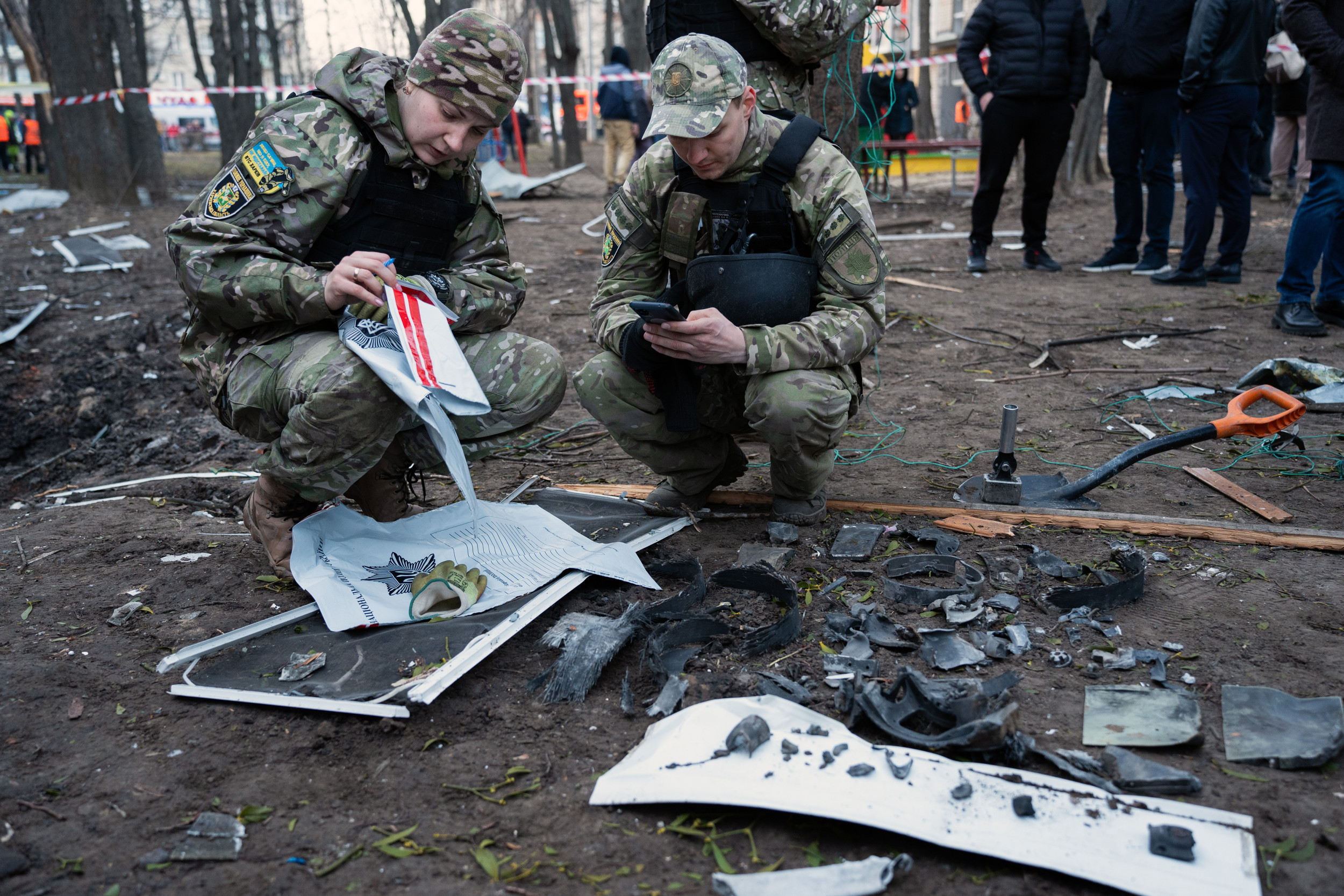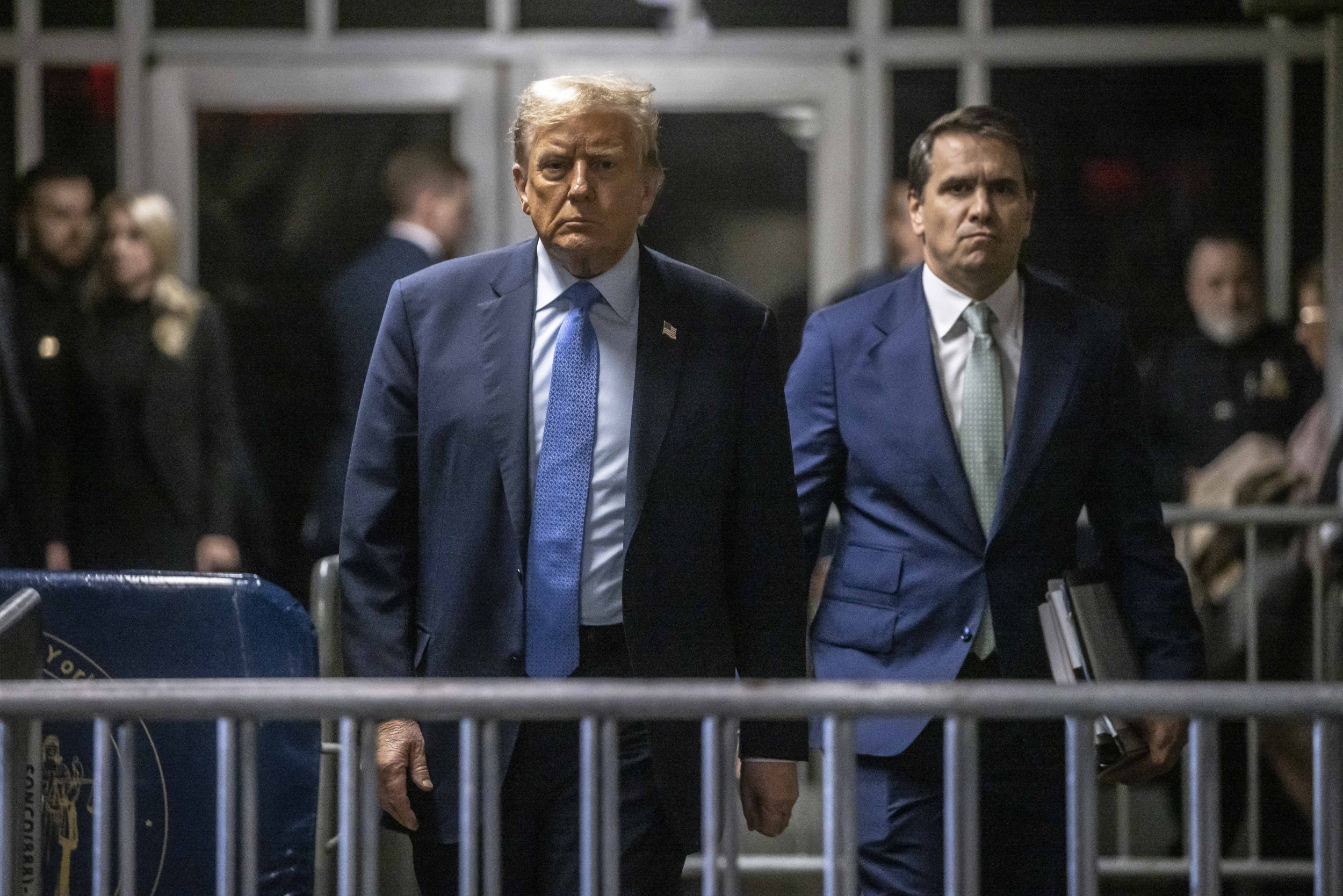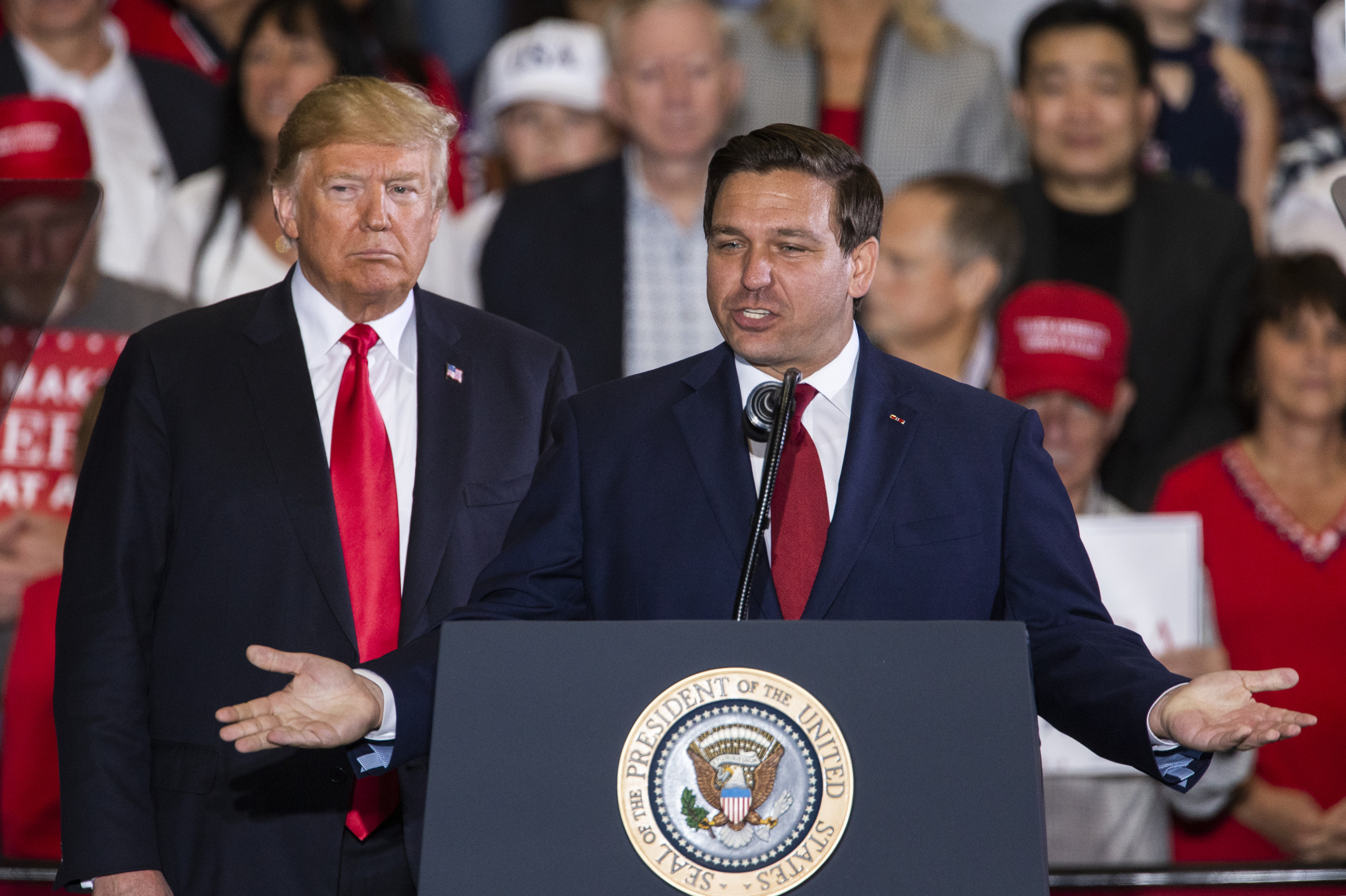A long-delayed U.S. assistance package for Ukraine to fight Russian aggression will be voted on this week, U.S. Speaker Mike Johnson has said.
Months of Congressional wrangling over further aid for Ukraine due to opposition from some Republicans have coincided with apparent Russian gains on the battlefield as Kyiv's forces face shortages of ammunition and equipment.
But Johnson announced Monday separate votes this week on more aid for Ukraine, as well as for Israel, following Iran's missile and drone attack which has added urgency to Washington's pledge to stand with its allies.
During a closed-door House GOP conference meeting in the Capitol basement, Johnson proposed four bills—the other two backing support for Taiwan and supporting U.S. national security priorities.

Each proposal can be voted on separately—unlike the Senate's $95 billion foreign aid legislation that combined all elements into a single package. Lawmakers can choose which pieces of the bill they would like to back or oppose and amendments will also be offered on each proposal.
"Johnson decoupling the military funding bills might be more palatable to some Republicans, but it's still a major gamble," Thomas Gift, founding director of the Centre on U.S. Politics at University College London told Newsweek on Tuesday.
Many questions remain, including how different the legislation will be from the Senate's spending limits and whether the four bills will be sent to the upper chamber separately, or recombined as a single package, The Hill reported.
Conservative lawmakers demanding additional Ukraine aid be accompanied by tougher security at the U.S.-Mexico border, excluded from Johnson's plan, have reacted in anger as his speakership faces the threat of ouster.
"A lot of conservatives are very upset about how this is going down," said Rep. Marjorie Taylor Greene, who is among the vehement GOP critics of more aid for Ukraine. "He's literally broken his promise," The Hill quoted the Georgia Republican as saying.
"Far-right members like Marjorie Taylor Greene won't be satisfied, and it increases the risk that his speakership will be jeopardized," Gift said. "That's especially true since none of the bills include resources for U.S. border security, which many GOP congressmembers have said is a priority."
Grant Reeher, director of the Campbell Public Affairs Institute told Newsweek that any further U.S. aid for Ukraine will put pressure on both Democrats and Republicans.
"Aid for Ukraine is supported broadly in the entire House of Representatives, and is viewed by many as existentially needed by that country," he said.
"If a small fringe of Republicans tries to stop it by deposing the Speaker, then Democrats need to come to the aid of Ukraine by propping up the Speaker, even though they disagree with them on most issues.
"Some Democrats like Tom Suozzi in New York have made this intention to help the Speaker clear, but more need to do so in order to push this aid through a closely divided House."
Republicans could try to block Johnson's package from coming to the floor, The New York Times reported, and the plan's success hinges on a complicated mix of bipartisan coalitions that support different pieces.
Some top Democrats have expressed reservations about Johnson's strategy, partly because aid for Ukraine's forces will be delayed while both chambers are in recess next week. "We don't have time," said Rep. Adam Smith, senior Democrat on the Armed Services Committee, according to The Hill.
Retired U.S. Navy Vice Admiral Robert Murrett said current constraints on Ukraine's military forces come ahead of the spring fighting season and the prospect of a further push by Russia to capitalize on its momentum on the battlefield.
"The current level of external warfighting support for Ukraine has moderated, particularly from the United States," Murrett, deputy director of Syracuse University's Institute for Security Policy and Law told Newsweek.
"Key elements in the conflict will include the scope of large-scale offensive ground and air attacks by Russian forces, the effectiveness of defensive and selective offensive activity by Ukrainian ground, air and naval units, and prospective renewal of substantial military assistance funding by the U.S. Congress."
Update 04/16/24, 8: a.m. ET: This article has been updated with comment from Thomas Gift.
Uncommon Knowledge
Newsweek is committed to challenging conventional wisdom and finding connections in the search for common ground.
Newsweek is committed to challenging conventional wisdom and finding connections in the search for common ground.
About the writer
Brendan Cole is a Newsweek Senior News Reporter based in London, UK. His focus is Russia and Ukraine, in particular ... Read more
To read how Newsweek uses AI as a newsroom tool, Click here.








